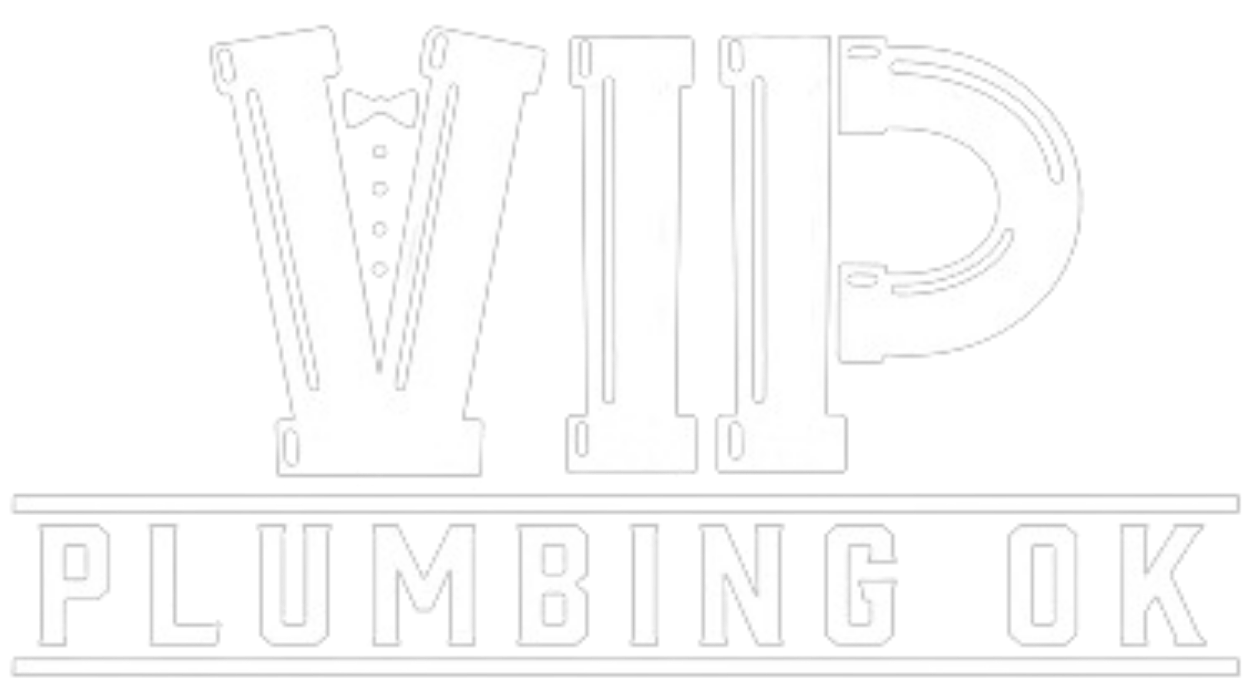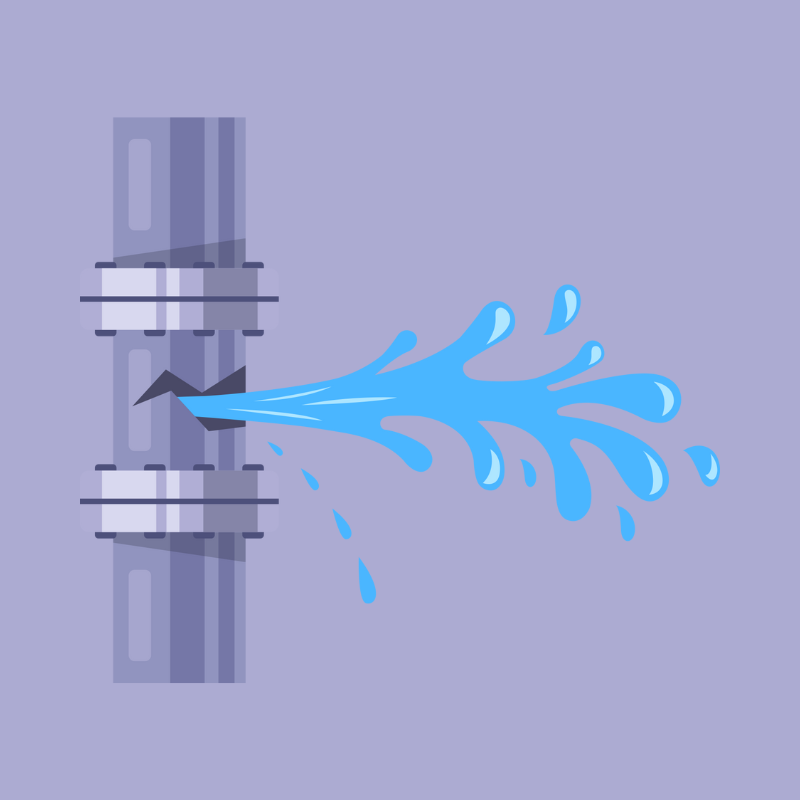Homeowners who live in colder climates are fully aware of the possibility of their plumbing pipes freezing and bursting when outdoor temperatures plummet, but something not many are aware of is that this plumbing disaster is common in hot weather, too.
In this article, we aim to equip you with the knowledge you need to handle a burst pipe during the summer heat. We’ll delve into the reasons behind this issue, explore the signs of a burst pipe, and, most importantly, share preventive measures to ensure your summer remains fun-filled and burst pipe-free.
Why Do Pipes Burst In Summer?
The biggest cause of a burst pipe in the summer can be attributed to the sheer amount of water that is used during the warmer months. Car washing, landscape irrigation, and refreshing the level of water in a pool are good examples of this increased demand. However, there are other contributing factors.
Extreme Heat
When extreme heat is combined with a lack of rain, the soil becomes severely dehydrated, and its composition changes. This resulting loose soil allows for buried pipes to become unsupported and shift. Over time, pipe motion will weaken pipe joints and allow pipes to become misaligned. This leaves openings in the run of pipe where soil and debris can enter and cause a clog.
Additionally, pipes that move and rub against dry soil become thin and can cause a burst pipe.
Clogs
Warm weather is the ideal time for family and friends to gather for special occasions or a Sunday picnic. This increased activity is directly related to increased use in the kitchen and bath.
In the kitchen, control over what is disposed of in the garbage disposal vanishes, as well-meaning guests help with cleanup. Items not normally placed in the kitchen sink now become fodder for major plumbing clogs.
The bathrooms, too, are used more frequently, with some guests requesting after-pool showers or, at the very least, heavier toilet use. Again, the increased water demands, along with poor flushing habits, can cause poorly monitored plumbing pipes to burst.
Hard Water
Although not tied to the summer months, water that is considered hard will continue to corrode pipes, with mineral buildup accumulating on pipe interiors. Hard water minerals such as calcium and magnesium will destroy a pipe from the inside out, and the increased use of water can add just enough pressure to burst an already compromised pipe.
Sun’s Rays
Most plumbing pipes either run through the walls and floors of a home or are buried underground. However, there are instances where the pipes are above ground and exposed to the sun’s UV rays. This can weaken pipe material, causing it to crack, split, and, yes, burst.
Signs Of A Burst Pipe
While some burst pipes will be evident as water floods your home and ruins your possessions, other times, they take place behind walls or underground, and detecting this type can be tricky. Here are some telltale signs your pipe may have burst.
Sound Of Running Water
A burst pipe suddenly opens, and water intended to reach a plumbing fixture or an appliance is now pouring into the wall or floor cavity through which the pipe travels. If you hear running water behind a wall, you may be in the midst of a plumbing emergency.
Increased Water Bills
Water running from a burst pipe has already passed through the water meter, so you will be charged whether you actually use it or not. If your monthly bill suddenly spikes without any increase in water usage, suspect a burst pipe and call a professional.
Fluctuating Water Pressure
When a faucet is opened, and the water exiting the spout sputters, it could be because a pipe has burst, allowing air to enter the plumbing line. Other issues could create this condition, but a burst pipe should be included in the investigation.
Wall Or Ceiling Stains
As water exits an indoor burst pipe, the adjacent building materials will rapidly absorb the excess water until it is fully saturated. Then, the errant water will begin to stain the walls and can even create a bulging and eventually collapsing ceiling if it goes undetected for any amount of time.
Mold And Mildew
When building materials become saturated, every crevice becomes wet. Combine this with dark and unventilated areas, and mold and mildew will quickly grow. Using your sense of sight and smell, keep on alert for mold and mildew growth, which likely indicates a failed plumbing pipe.
Pooling Water
Outdoor burst pipes can leave wet spots or pools of water or sewage in the yard. If the burst pipe comes from the sewer line, a foul odor will accompany these conditions.
Sinkholes
As water flows out of a burst pipe, it will erode the surrounding soil. Not only will the pipes soon be unsupported by the missing dirt, but sinkholes can form, causing sections of the yard to collapse.
Preventing Burst Pipes In The Summer
Aside from the apparent tip to act fast once a burst pipe is detected, here are a few other suggestions for adequately handling this situation.
Know Where The Shut-Off Valve Is Located
When a home floods or wastewater pools in the yard, the water supply must be turned off immediately. This requires knowledge about where the shutoff valve is located. Every home is equipped with a valve to be used when repairs are needed or in an emergency situation, as is described in this article.
Do not ignore the shutoff valve. It needs to be inspected yearly to ensure it is operational so that homeowners can respond responsibly when disaster strikes.
Call In The Experts
A burst pipe is no laughing matter, as it likely will produce costly damage to a home and possible future health-related issues from inhaling mold spores. Repairing a burst pipe should be the responsibility of a licensed and insured plumber who can ensure the very best outcome while keeping local plumbing codes and regulations in mind.
Enroll In Ongoing Plumbing Inspections
Enrolling in a yearly plumbing inspection is the best defense against summer pipe bursts. During that time, a professional can evaluate the age, condition, and type of pipe material used in a home. They can look for early signs of a failing pipe and can direct the proper remediation of any issues they detect.
Looking To Avoid A Pipe Burst This Upcoming Summer?
A burst pipe is a serious plumbing problem that can cause severe damage to homes and pose possible health risks to the inhabitants. If you need help maintaining your plumbing pipes and fixtures to avoid this costly disaster, we are here to help! Call us to schedule a plumbing inspection to identify and repair minor issues, ensuring a burst pipe is never in your future!

